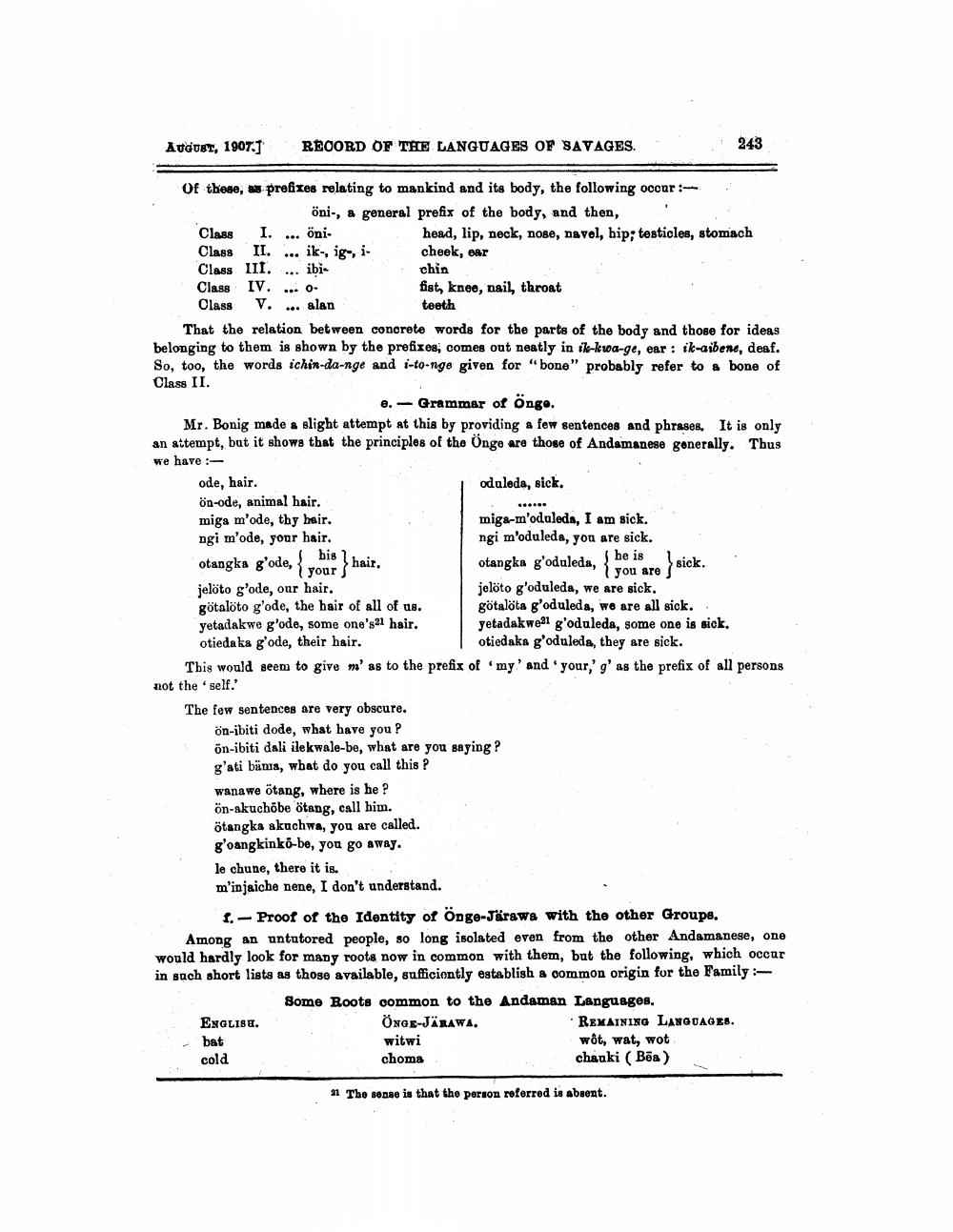________________
AUGUST, 1907.]
Of these, as prefixes relating to mankind and its body, the following occur:
öni-, a general prefix of the body, and then, öni
ik-, ig-, iibi
RECORD OF THE LANGUAGES OF SAVAGES.
Class I. Class II. Class III.
Class IV. ... 0
Class V. alan
...
ode, hair.
ön-ode, animal hair. miga m'ode, thy hair. ngi m'ode, your hair.
That the relation between concrete words for the parts of the body and those for ideas belonging to them is shown by the prefixes; comes out neatly in ik-kwa-ge, ear: ik-aibene, deaf. So, too, the words ichin-da-nge and i-to-nge given for "bone" probably refer to a bone of Class II.
head, lip, neck, nose, navel, hip; testicles, stomach cheek, ear
chin
fist, knee, nail, throat
teeth
e.
Grammar of Önge.
Mr. Bonig made a slight attempt at this by providing a few sentences and phrases. It is only an attempt, but it shows that the principles of the Önge are those of Andamanese generally. Thus we have :
yetadakwe g'ode, some one's21 hair. otiedaka g'ode, their hair.
bis
otangka g'ode, {or} hair. jelöto g'ode, our hair.
götalöto g'ode, the hair of all of us.
ENGLISH. bat
cold
oduleda, sick,
wanawe ötang, where is he? ön-akuchōbe ötang, call him. ötangka akuchwa, you are called. g'oangkinko-be, you go away.
le chune, there it is.
m'injaiche nene, I don't understand.
******
miga-m'oduleda, I am sick. ngi m'oduleda, you are sick. he is
otangka g'oduleda, you are sick.
jelöto g'oduleda, we are sick. götalöta g'oduleda, we are all sick.
yetadak wel g'oduleda, some one is sick. otiedaka g'oduleda, they are sick.
This would seem to give m' as to the prefix of 'my' and 'your,' g' as the prefix of all persons not the 'self."
The few sentences are very obscure.
ön-ibiti dode, what have you ?
ön-ibiti dali ile kwale-be, what are you saying?
g'ati bina, what do you call this?
243
f. Proof of the Identity of Önge-Jarawa with the other Groups.
Among an untutored people, so long isolated even from the other Andamanese, one would hardly look for many roots now in common with them, but the following, which occur in such short lists as those available, sufficiently establish a common origin for the Family:
Some Roots common to the Andaman Languages.
ÖNGE-JÄRAWA. witwi choma
21 The sense is that the person referred is absent.
REMAINING LANGUAGES.
wôt, wat, wot chauki (Bea)




